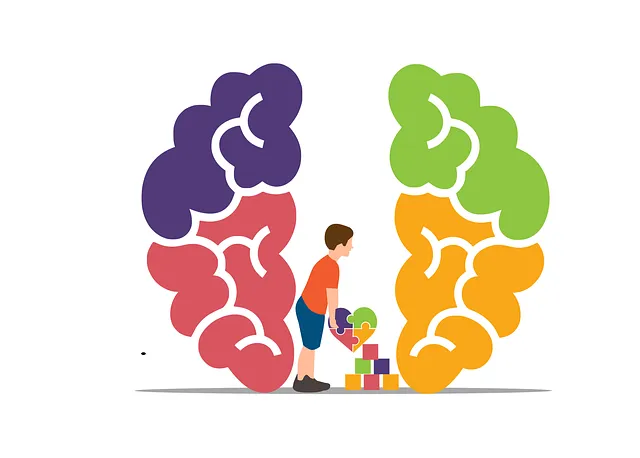The media's portrayal of mental illness significantly impacts societal perceptions and individual responses, either positively or negatively. Accurate representations, such as those promoted by Littleton Kaiser Permanente behavioral health services, can reduce stigma, encourage early intervention, and support individuals in seeking help. Conversely, negative depictions can lead to misinformation and isolation. Effective strategies like personal storytelling and mindfulness meditation counterbalance these effects, fostering empathy and a supportive environment for mental wellness. Littleton Kaiser Permanente Behavioral Health Services leads efforts to reshape public perception through comprehensive programs, specialized care, and collaborative approaches with media, promoting nuanced and authentic portrayals of diverse mental health conditions.
In today’s media-driven world, the representation of mental illness can significantly shape public perception and understanding. This article explores the impact of media portrayal on mental health attitudes and introduces effective challenge solutions. We delve into the crucial role played by organizations like Littleton Kaiser Permanente Behavioral Health Services in promoting accurate, sensitive, and diverse depictions of mental illness. By examining strategies to enhance media accuracy, we aim to foster a more empathetic society.
- Understanding the Impact of Media Portrayal on Mental Health Perception
- The Role of Littleton Kaiser Permanente Behavioral Health Services in Promoting Accurate Representation
- Strategies to Enhance Media Accuracy and Sensitivity in Addressing Mental Illness
Understanding the Impact of Media Portrayal on Mental Health Perception

The media plays a significant role in shaping societal perceptions about mental health, often influencing how individuals understand and respond to various conditions. The portrayal of mental illness in films, television shows, and news articles can either promote awareness and understanding or perpetuate harmful stereotypes. When media representations accurately reflect the complexities of mental health struggles, they contribute to reducing stigma and encouraging support-seeking behaviors. For instance, Littleton Kaiser Permanente behavioral health services have recognized the impact of such depictions and initiated community outreach programs to educate the public about mental wellness.
Positive media coverage can foster empathy, promote early intervention, and encourage individuals to seek professional help without fear of judgment. On the contrary, negative or inaccurate portrayals may lead to misinformation, further isolation for those struggling with mental health issues, and a general underestimation of the prevalence and impact of these conditions. Implementing effective communication strategies, including sharing personal stories and promoting mindfulness meditation practices, can help counterbalance these negative effects and create a more supportive environment for mental health awareness.
The Role of Littleton Kaiser Permanente Behavioral Health Services in Promoting Accurate Representation

Littleton Kaiser Permanente Behavioral Health Services plays a pivotal role in challenging stereotypical representations of mental illness in media. Through their comprehensive programs and initiatives, they actively promote awareness and understanding of various psychological conditions. By offering specialized care and support, the services ensure that individuals with mental health concerns receive accurate diagnoses and effective treatment plans tailored to their unique needs.
This healthcare provider fosters a culture of empathy and educates both patients and the wider community about the realities of mental illness. They facilitate workshops, groups sessions, and counseling services aimed at developing coping skills, promoting emotional healing processes, and teaching stress management techniques. These efforts contribute significantly to debunking myths surrounding mental health issues, encouraging early intervention, and fostering inclusive environments where individuals can seek help without fear of stigma or judgment.
Strategies to Enhance Media Accuracy and Sensitivity in Addressing Mental Illness

Media plays a significant role in shaping public perception about mental health. To challenge stereotypes and promote understanding, there are several strategies that can enhance media accuracy and sensitivity when addressing mental illness. One approach is to involve individuals with lived experiences as consultants or contributors, ensuring their voices are heard and represented authentically. This practice adds depth and authenticity to storytelling, challenging the tendency to reduce complex conditions to simplistic narratives.
Additionally, organizations like Littleton Kaiser Permanente behavioral health services can offer valuable resources for accurate representation. They can provide insights into best practices in mental health care, including Trauma Support Services and Risk Management Planning for Mental Health Professionals. By leveraging such expertise, media outlets can create more nuanced portrayals, reflecting the diverse spectrum of mental illness and promoting Inner Strength Development. These collaborative efforts are crucial in fostering a more empathetic and informed society.
Media representation plays a pivotal role in shaping public perception of mental illness. By partnering with organizations like Littleton Kaiser Permanente Behavioral Health Services, we can foster more accurate and sensitive portrayals in media. Implementing strategies to enhance accuracy and sensitivity is crucial for reducing stigma and promoting understanding, ultimately encouraging those struggling with mental health issues to seek help without fear of judgment.






